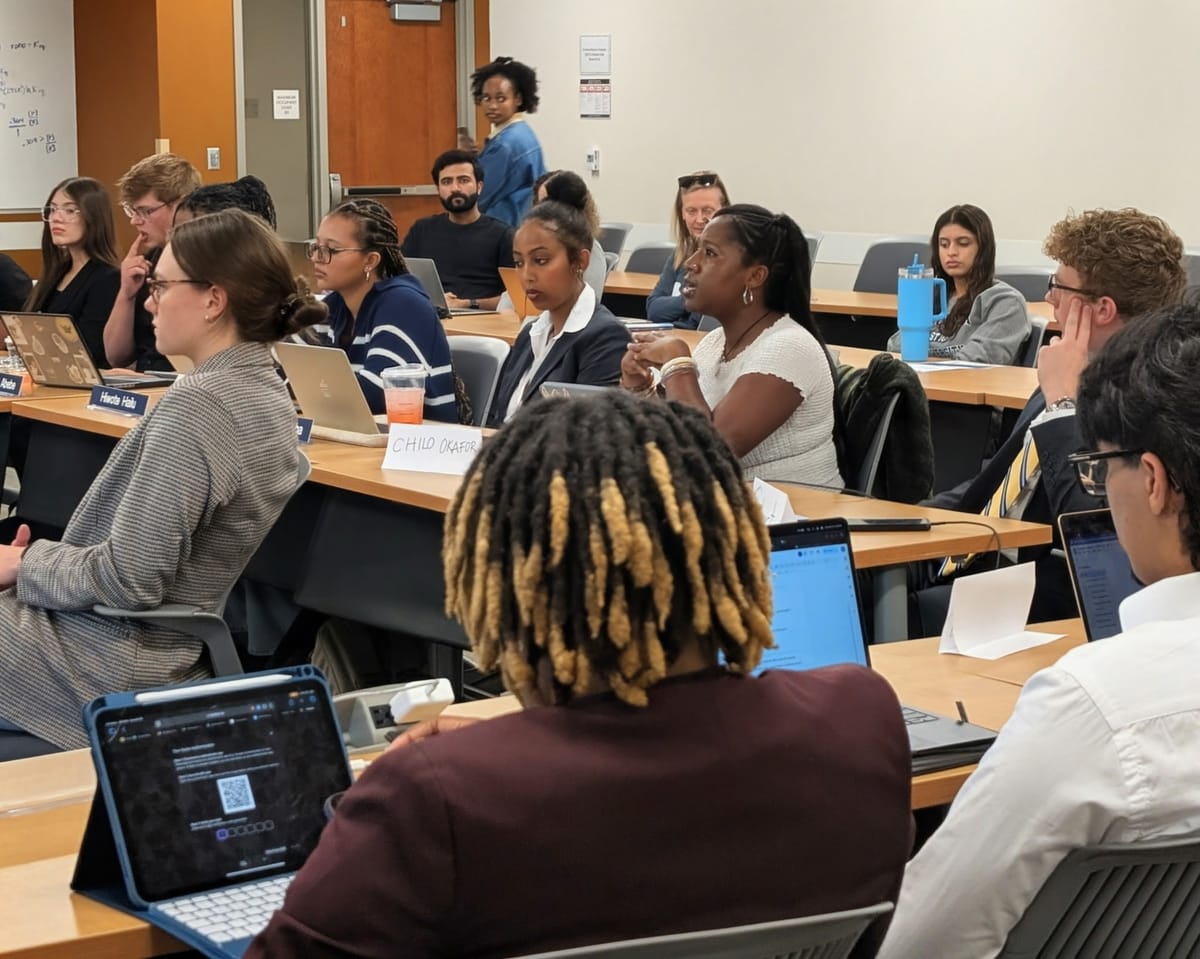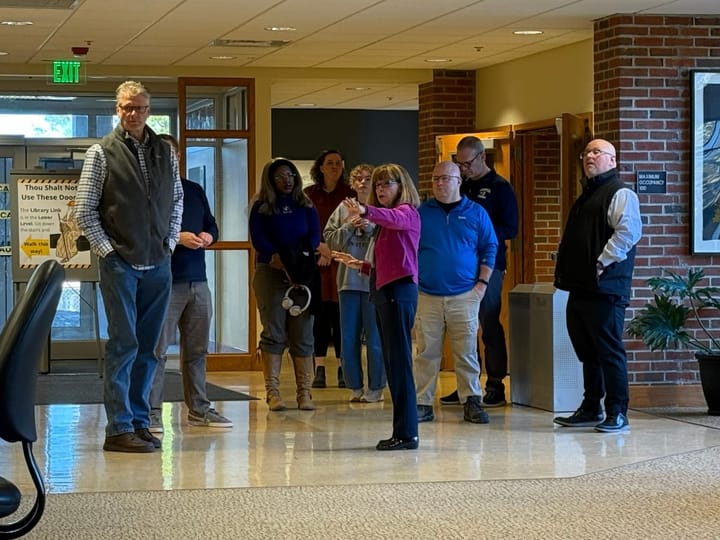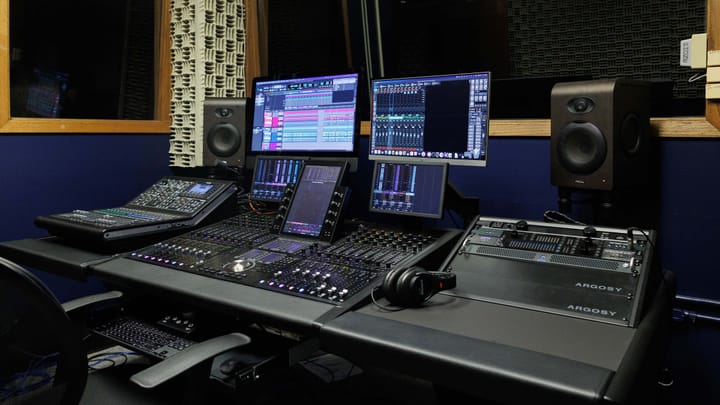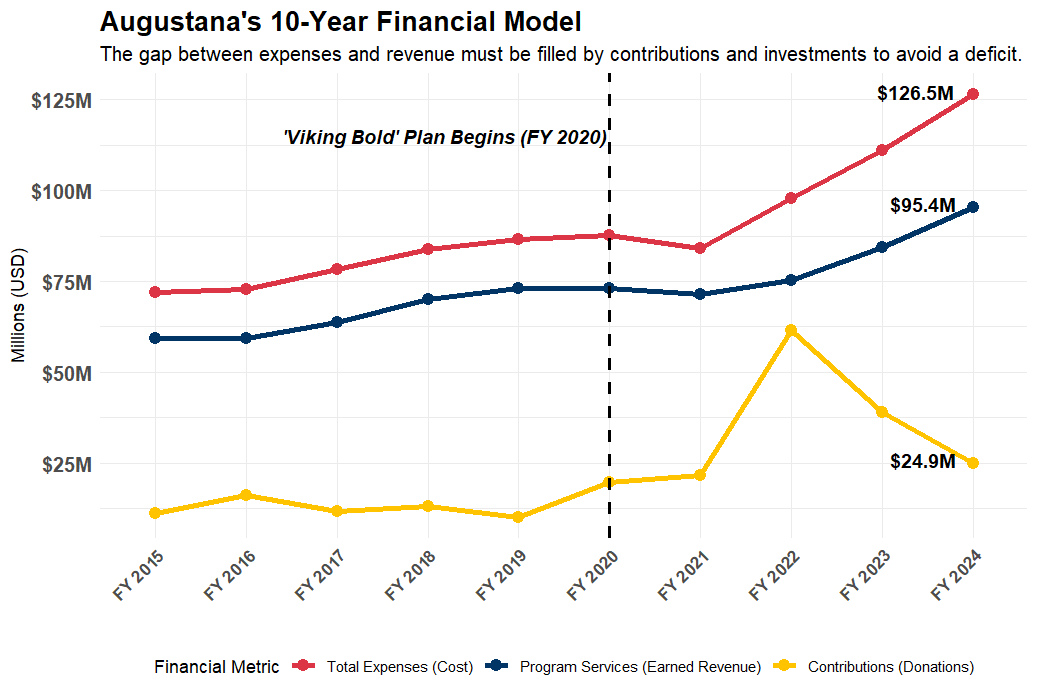ASA reinstates emergency Lyft passes after student backlash

At the Nov. 2 Augustana Student Association (ASA) meeting, President sophomore Igen Nyawanda announced that ASA is bringing back Lyft passes as an “emergency” measure to address student transportation needs through January 2026.
The move follows several weeks of student feedback after the executive team paused the Lyft program to test Sioux Falls’ Sioux Area Metro (SAM) On Demand public transit system. Some students expressed frustration about what they described as reliability issues with the new service and unclear communication from ASA executives about the changes.
According to ASA leadership, the decision to pause the Lyft program was an effort to properly test a local alternative, not to cut costs. The ASA administration said they hoped that by prioritizing Sioux Falls’ public transit system, they could both invest in the local community and gather meaningful data on whether SAM could meet student needs long-term.
“In terms of the budget, it was not really intended as a budget decision,” ASA treasurer senior Ian Kelly said. “[It was] just a desire to support local institutions.”
The executive team believed that to get accurate data on SAM, the Lyft program had to be paused. Nyawanda said that if the more convenient Lyft service was still available, students would not use SAM, and ASA would not get accurate metrics on its viability.
This concern was based on last year's trial, during which the Johnston-Adhikari administration tested SAM while still providing Lyft passes. Because students overwhelmingly preferred Lyft, the SAM trial saw low usage and negative feedback, and the administration ultimately decided not to move forward with SAM.
First-year senator Ayden Calvert agreed with the ASA administration’s perspective, saying that people will always rely on Lyft when trials take a “one foot in, one foot out” approach.
“I think we kind of need to get thrown in with the sharks a little bit,” Calvert said. “We have to fully integrate into the SAM system, I believe.”
Several students who previously relied on ASA’s Lyft passes said that they found the SAM trial unreliable and impractical.
Senior Beatrice Anyim used SAM to get to her internship over the summer and continued using it during the fall when the current ASA administration began its SAM trial period.
Anyim said that SAM was reliable over the summer when fewer people used the service, but her experience during the fall was the opposite. She said while she needs to clock in at 7 a.m., her drop-off time was consistently delayed during fall, making her late for work.
“What happens is, you get on the bus, another pickup point will be added, and your 7:00 drop-off turns into 7:20, and then your 7:20 drop-off turns into 7:35, and basically you continue being delayed,” Anyim said. “That happens to me every Tuesday and Thursday when I go to work.”
Other students shared similar frustrations. Abdul Noor, a sophomore, recalled a SAM trip to a barbershop taking an hour and 25 minutes. The ride would have taken 12 minutes using Lyft.
Noor also pointed out that SAM’s pickup and drop-off points can be impractical, remembering a trip to the Empire Mall he took using SAM.
“It was a seven or eight-minute walk to the mall from where they dropped us off,” Noor said. “We didn’t have anything [to carry] so it worked out pretty good, but if you have stuff to carry and everything, I don't think a seven or eight-minute walk is feasible with a load of food, especially if you’re only going once a month.”
Students also faced a gap in transportation services after the free SAM trial ended in mid-October, leaving them with no sponsored transportation options.
Another source of frustration was what several ASA senators and students described as a lack of clear communication from the ASA executive team about the pausing of Lyft.
Nyawanda disputed these criticisms, stating that the administration was transparent about the changes.
“The lane of communication was never closed,” Nyawanda said.
In an Oct. 27 statement, the ASA executive team defended their actions, stating the decisions were not made in secret.
The statement said that “the intent to explore alternative transportation opportunities” was included in the public strategic plan, which had been presented to all ASA senators at the start of this semester's session.
“The communication was there,” Nyawanda said. “It just may not have been engaged with by the people that were asked to engage from it.”
However, both Anyim and second-year senator Nina Luz said the main issue with the administration’s communication was that it focused on the SAM trial but failed to explicitly state that Lyft was being paused.
Luz said she found out the Lyft program was paused during one of her committee meetings in early September, not from a formal announcement. Anyim said she heard about the changes through word of mouth.
“The only thing they said about this was how they were implementing SAM on Demand and UNI Go as another resource, and not that they were taking back Lyft,” Luz said. “One thing doesn't mean the other, and they should be clear about that.”
UNI Go, a university-sponsored rideshare app, has the potential to be a separate, long-term solution; the university has been exploring the possibility in collaboration with Augustana alumnus Taha Afzal. The app was considered for beta testing last year, but the university is now planning to move forward with a full beta test in the spring.
Anyim and Luz also took issue with the fact that the executive team’s announcements were primarily communicated at events like International Student Orientation, Olepalooza and FYS classes, all events catered to new students.
Both argued that upperclassmen, who had come to expect the program to be functional, were blindsided.
“It’s not fair to not tell the students that they're not going to receive the transportation that they were counting on,” Luz said.
The newly announced “emergency Lyft passes” will run from the closing of pass applications through January 31. Applications for the passes opened Nov. 2 and will close Saturday, Nov. 9, at 11:59 p.m.
ASA Vice President sophomore Maggie McKeown called the measure a “little bridge” to provide students with transportation before the UNI Go app begins beta testing in spring.
Nyawanda said that the reinstatement was in response to student feedback as well as being part of the strategic plan’s “evaluation phase.”
This temporary Lyft program will be structured differently than in previous years. Instead of capping the number of students who can apply, ASA plans to decrease the subsidy amounts to allow more students to benefit from the program. These new amounts will be determined by the number of students that apply for emergency passes.
While searching for a long-term solution, ASA plans to form a transportation committee during J-term.
“I feel like our J-term committee is the perfect opportunity to bring together all these voices and put them in a room,” Nyawanda said.
The goal, he said, is to find a solution that is both equitable and cost-effective for the greatest number of students.



